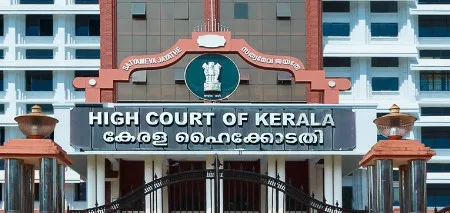The Kerala High Court has taken suo motu cognisance of the food poisoning incident at an Anganwadi in Ponnurunni, Kochi, and directed the Kochi Corporation to provide details of steps taken to clear filth from city drains. The directive follows reports of food poisoning among children at the Anganwadi, allegedly caused by contaminated water.
The High Court has instructed the Kochi Municipal Corporation on December 23to file an affidavit explaining the measures initiated to clean the drains and prevent the dumping of plastic and waste into drains, rivers, and backwaters. The case was initiated suo motu by the court after visuals broadcast by the media showed a drainage system near the Anganwadi overflowing with filth.
“This is an embarrassment for the entire city, witnessing such an accumulation of filth without proper removal,” the court remarked.
Critics argue that the communist government lead by CM Pinarayi Vijayan in Kerala consistently failed to prioritise municipal upkeep, hygiene, and proper town planning. The High Court’s repeated interventions, directing the state administration to act, highlight the persistent negligence of politicians in addressing these fundamental issues.
Twelve children and a maid from the Anganwadi in the Ponnurunni East division of the Kochi Corporation reportedly experienced symptoms of food poisoning, including vomiting and diarrhoea. A Division Bench comprising Justice Bechu Kurian Thomas and Justice Gopinath P. directed:
“The Secretary of the Kochi Corporation or the person in charge shall file an affidavit detailing the steps being taken to clear the filth from drains in Kochi and to prevent the dumping and accumulation of plastic and other waste in drains, rivers, and backwaters.”
The court further noted: “The news visuals showed a drainage system running adjacent to the Anganwadi, filled with filth to the brim.”
The Kochi Corporation defended itself by stating that Ponnurunni was considered one of its well-maintained divisions and that investigations were underway to identify the cause of the food poisoning and the drain’s poor condition.
The court also raised concerns about waste disposal practices, observing: “We have repeatedly emphasised to the government the importance of monitoring waste disposal methods used by agencies. It is alarming that waste generated in Kerala is being disposed of in neighbouring states haphazardly and in violation of legal requirements. Such practices must be curtailed.”
The court further directed the Secretary of the Local Self-Government Department to file an affidavit regarding the agencies involved in waste collection and disposal, including those serving hospitals and bulk waste generators. The affidavit should also detail the methods used to track and manage waste disposal.
Residents of Kochi have long complained about the poor drainage system and inadequate maintenance of drains. While there is a waste collection system in place, it is considered inefficient. Heavy rains often lead to “flash floods” across Kochi, severely disrupting daily life. MG Road, the city’s most important thoroughfare, is particularly prone to flooding during the monsoon.
Several former canals in the city have been reduced to narrow drains due to encroachment by land-grabbers. Critics argue that these issues persist due to the lack of timely and effective action by the authorities.
Local residents have also criticised the Communist-led Kerala government, which has been in power for most of the past four decades, for neglecting the city’s drainage system and failing to prioritise its maintenance.




















Comments